commentary Commentary
Commentary: Of course travel plans will go awry. It’s a foreign country
A teenager airing her grievances about problems she encountered on a trip to Japan is missing the point entirely. It is these unexpected detours and delays that makes one’s travels worth remembering.
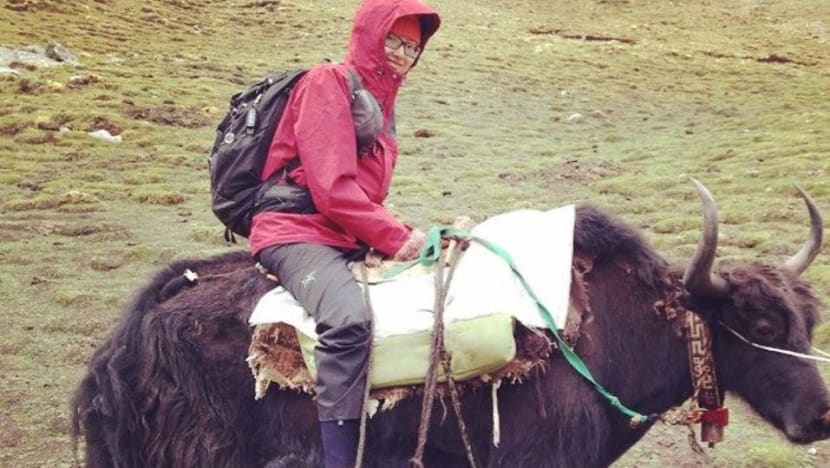
On a yak in Tibet. (Photo: Karen Tee)
SINGAPORE: “I don’t think I know anyone who doesn’t love Japan,” I declared with confidence during a recent conversation with friends about our favourite travel destinations.
After all, the land of the rising sun holds a special place in the hearts of many Singaporeans - there’s delicious cuisine, incredible shopping, unique culture, jaw-dropping landscapes and most of all, impeccably polite people who will go out of their way to help lost, bumbling tourists despite the language barrier.
Of course, I am proven wrong a few days later when a teenager, Audrey Chong, caused an online stir because she took issue with her trip there in a Facebook post.
She bemoaned the clockwork timing of Japanese public transport, where she might miss a bus if she were just a minute late. She had problems with her Wi-Fi router and could not make sense of Google Maps.
On top of that, she seemed to advise against travel “because no staycation in Singapore will ever prepare you for a trip in a foreign country”.
Cue social media storm. Many took offence that she did not enjoy traveling to a place they ranked among their favourites; others labelled her a snowflake for what they perceived as an entitled attitude.
GETTING LOST IS THE POINT
But something important got buried in all that chatter. It is an essential truth of travel that despite one’s best laid plans, delays, inconveniences and unforeseen obstacles will happen.
And these encounters often end up being the formative experience of a trip, so you might as well just roll with the punches and enjoy the ride instead of fretting about how things have gone wrong.
For as long as I can remember, I’ve had the good fortune of embarking on frequent travels. From budget backpacking holidays as a university student to glampacking sojourns with my partner and luxurious trips in the name of work, I’ve experienced it all.
One of my favourite travel memories is of a high-altitude trek I did in Tibet where I was afflicted with a potentially life-threatening bout of altitude sickness.
We were two days into a grueling four-day trek across a mountain range that connects two key Buddhist monasteries, which included traversing passes that were over 5,000m above sea level
That night, I could not breathe without the aid of an oxygen tank. By morning, I could barely walk even a few steps unassisted. I wanted badly to push through and complete the trek, which I regarded as a personal pilgrimage, but for my safety, we had no choice but to descend to a lower altitude.
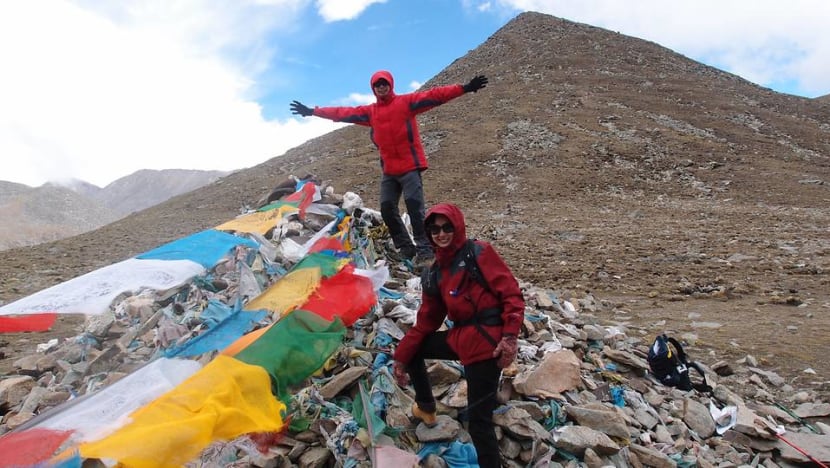
I was bundled onto a yak and spent the better part of the day clinging on for dear life as the obstinate creature took its time meandering along steep, rocky paths and wading through streams of melting ice.
I may not have completed my track but I suppose I am now one of the few people on this planet who can tell the story of how a yak saved my life. It never fails to entertain.
More meaningfully, I witnessed the famed Tibetan Buddhist tenet of compassion in practice too - our guide took it upon himself to carry the heavy oxygen tank because he wanted to spare the animal the extra weight.
SMALL LESSONS
Not all travel epiphanies involve life and death situations, although I do recall that time when we drove through a massive strike in Oaxaca, Mexico, to get to the region’s famed mezcal distilleries. It was an intimidating sight, especially to travellers from orderly Singapore and we considered turning back.
Instead we decided to make our way through the roadblocks by following other cars through detours along dirt trails leading into small villages that we would have otherwise bypassed on the highway.
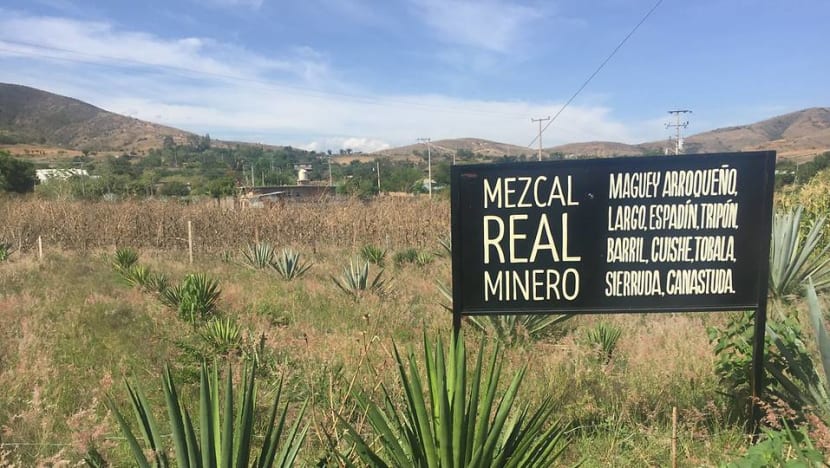
Not only was it eye-opening to see how the locals lived, we also got a small lesson on the impact of globalisation too.
In recent years, the spirit has gained global popularity, and is now widely exported around the world. In this region, which is one of the poorest in Mexico, many mezcal producers who used to produce the spirit for local consumption are now selling it for international export.
Many have used their earnings to build homes with running water, electricity and plumbing for themselves and their families (an upgrade from the shacks they used to live in), and those who are more successful are investing in their communities too.
At least one particularly successful mezcal producer has even built roads and schools in his village. Knowing this made the tipple I sampled that day taste even better.
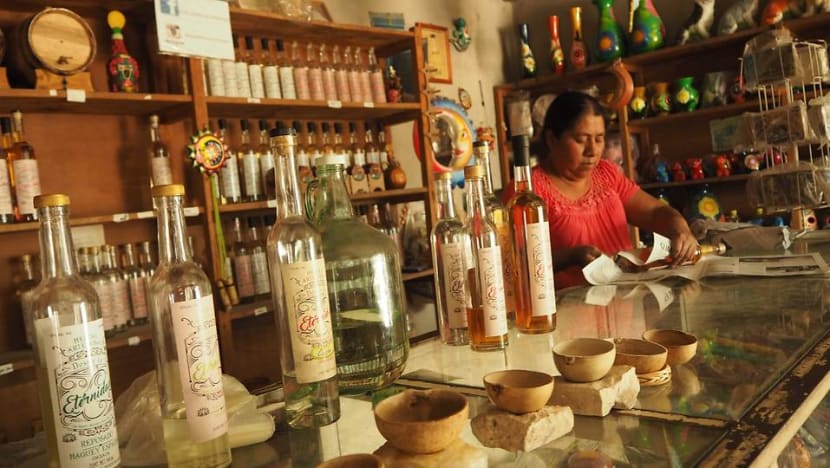
SNAFUS
I’ve had certainly had my fair share of transportation snafus - oh, to always travel to a place, like Japan or Germany, where your biggest worry is that the trains and buses leave on time! Once, a terribly delayed flight to Lima, Peru, put a coveted dinner reservation to Maido, one of the city’s most critically acclaimed restaurants, in grave danger.
I am aware this is a #firstworldproblem but nevertheless, I am forever grateful to my driver, hotel concierge and airport greeter for engineering a complicated series of phone calls and devising multiple driving route options through the city’s infamous traffic snarl to ensure we made it in time for our reservation.
(Pro tip: If you are arriving in an entirely new destination and it is within budget, make arrangements for an airport transfer. This significantly eases travel-related disorientation.)
For the record, the meal was well worth the stress of getting there. The restaurant’s chef Mitsuhara Tsumura is a master of Nikkei food, a unique cuisine featuring Peruvian ingredients prepped using Japanese techniques.
I never would have conceived of a dish like guinea pig karaage, much less imagined I would enjoy eating it but there I was, snacking on moreish, crispy and juicy morsels of the fried rodent like any regular bar snack.
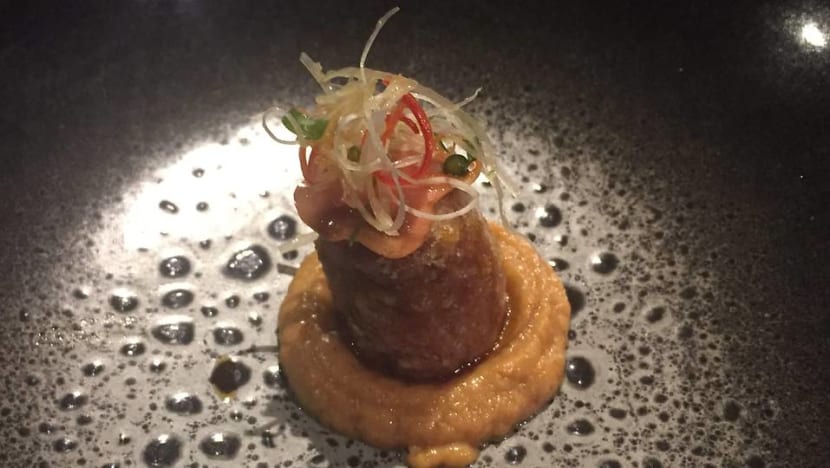
Most recently, all that online ruckus about Japan inspired me to hop on a last minute flight to spend a few days in Tokyo. On my last day, which happened to coincide with the Tokyo Marathon, I had to get to Tokyo Station, which is the finishing point of the race.
I was concerned that the station would be shut down because of this event but besides the presence of many runners wandering its halls after their run, everything seemed to be functioning as normal.
However, for the first time on this trip, Google Maps and my Wi-Fi router did not work, possibly because the network was overloaded and I worried that I would miss my scheduled train because I was lost.
And for the first time in a long time, I looked up from my cellphone to ask people for directions, communicating with hand gestures where necessary. I made it, heavy luggage in tow, to the right train platform, pleased with myself for navigating the complicated train station with the help of kind strangers.
Sometimes, the minuses are actually plusses in disguise.
Karen Tee is a freelance travel and lifestyle writer. Six years ago, people thought she was crazy to leave the security of her full-time job. Today, most want to know how she does it















